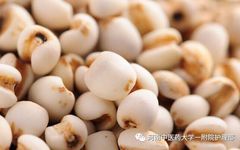Coix Seed: A Premium Herb for Dampness Elimination and Anti-Cancer Treatment
Coix seed, known as Yi Yi Ren (薏苡仁), is the seed of the plant Coix lacryma-jobi, also referred to as Job’s tears. This herb is a specialty of China, cultivated across various regions, with significant production in Fujian, Jiangsu, Hebei, and Liaoning, typically found growing by rivers, streams, or in damp valleys. At the end of autumn, when the fruits mature, the plants are harvested, dried, and the seeds are collected after removing the outer shell.
The coix seeds are plump, white, and clean, with a soft and glutinous texture. They are rich in starch, protein, fat, calcium, phosphorus, iron, and vitamins. Coix seeds can be made into soups, porridge, or rice dishes, serving as nourishing delicacies. Besides culinary uses, coix seeds are also a valuable medicinal herb. In Traditional Chinese Medicine (TCM), the applications of coix seeds are extensive, treating conditions such as urinary difficulties, edema, beriberi, spleen deficiency diarrhea, rheumatic pain, and even lung and intestinal abscesses.
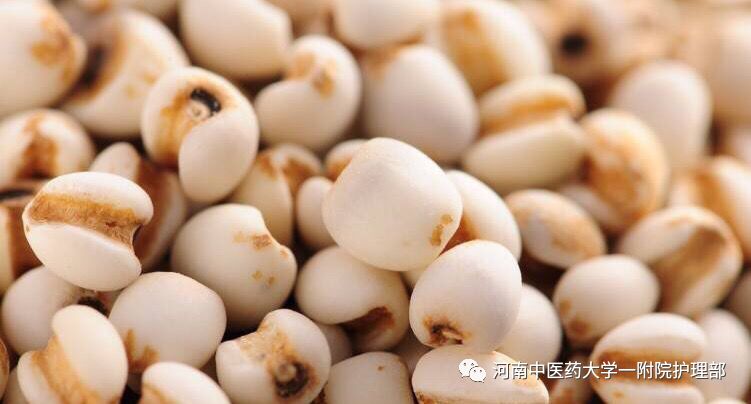
Modern pharmacological studies have confirmed that coix seeds possess antibacterial, antiviral, and anti-cancer properties. For cancer patients, coix seeds are an excellent remedy with anti-tumor effects. They have shown positive results in improving conditions such as leukopenia, loss of appetite, ascites, and edema during radiotherapy and chemotherapy.
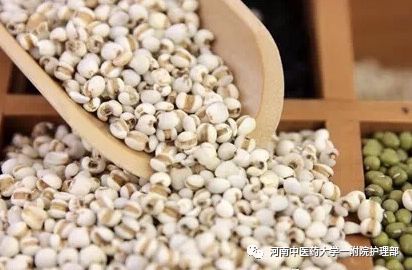
Coix seeds are slightly cold in nature, promoting diuresis and dampness elimination, clearing heat and pus, and alleviating pain. They can be used for urinary difficulties, edema, beriberi, lung abscess, intestinal abscess, rheumatic pain, and conditions of damp-heat in the Qi level. For example, the Yi Yi Du Zhong Tang (薏苡杜仲汤) treats beriberi and edema; the Wei Jing Tang (苇茎汤) is used for lung abscess with purulent cough; the Yi Yi Tang (薏苡汤) addresses early-stage intestinal abscess; the Yi Yi Ren San (薏苡仁散) is for rheumatic pain; and the San Ren Tang (三仁汤) treats damp-heat in the Qi level.
According to the Compendium of Materia Medica (本草纲目), coix seeds are classified as a Yangming herb, capable of strengthening the spleen and benefiting the stomach. They are used for lung atrophy and lung abscess. For musculoskeletal diseases, they are foundational for treating Yangming conditions, thus used for muscle spasms and rheumatic pain. They can eliminate dampness and are indicated for diarrhea and edema. The Commentary on the Materia Medica (本草经疏) states that their dry nature can eliminate dampness, and their sweet flavor can enter the spleen to tonify it, while their mild nature can promote diuresis. Therefore, they are indicated for muscle spasms and rheumatic pain, alleviating joint pain and benefiting the gastrointestinal tract, reducing edema and improving appetite. The Shennong Bencao Jing (神农本草经) lists coix seeds as a superior herb, noting their sweet and slightly cold nature, with effects of relieving muscle spasms, alleviating rheumatic pain, and reducing Qi stagnation, and that long-term use can enhance vitality.
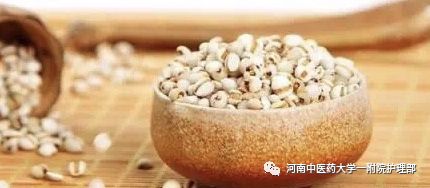 Common Preparations Include:
Common Preparations Include:
【Green Bean and Coix Seed Porridge】
1. Clean coix seeds, green beans, rice, and millet, and set aside.
2. Place coix seeds, green beans, and rice in a clay pot, add water, and cook for 40 minutes.
3. Add millet and cook for another 30 minutes.
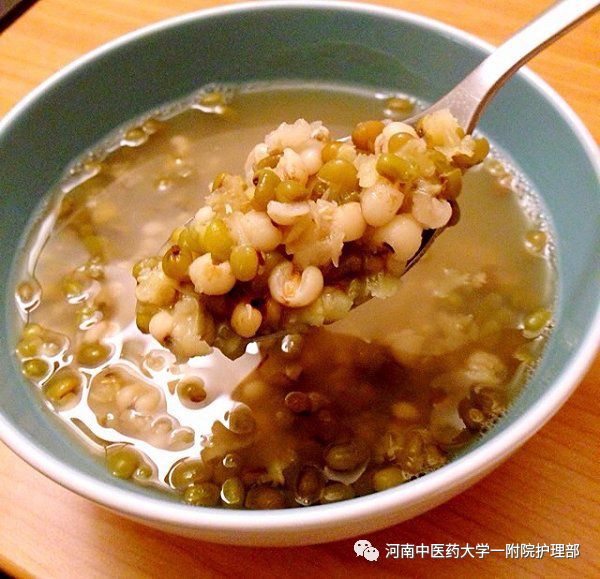
【Coix Seed, Pork Rib, and Winter Melon Soup】
1. Clean coix seeds and set aside; clean pork bones, blanch to remove scum, and set aside.
2. Clean winter melon and cut into 5mm slices, leaving the skin on, as the skin has weight-loss and beauty benefits; slice ginger.
3. In a clay pot, add boiling water, then add the blanched pork bones, winter melon, cleaned coix seeds, and ginger. Bring to a boil, skim off the scum, then reduce to medium-low heat and simmer for about an hour, adding salt to taste.
【Nutritional Benefits】
1. Winter melon has benefits for lung hydration, phlegm reduction, thirst alleviation, diuresis, heat clearing, detoxification, and pus elimination, making it suitable for kidney disease, edema, liver cirrhosis with ascites, cancer, beriberi, hypertension, diabetes, arteriosclerosis, coronary heart disease, obesity, and vitamin C deficiency.
2. Coix seeds are sweet, slightly cold, and beneficial for diuresis, edema reduction, spleen tonification, dampness elimination, muscle relaxation, and heat clearing, making them a commonly used diuretic and dampness-eliminating herb.
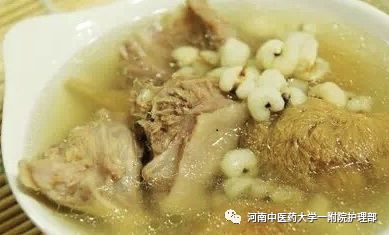

For more exciting recommendations, please follow us!
Edited by: Lin Zhihong Editor: Zhang Wenlei
Reviewed by: Lin Zhihong Article provided by: Li Ruihua
Image sources are from the internet, and copyright belongs to the original authors. If there are any questions, please contact us, and we will delete them promptly.

